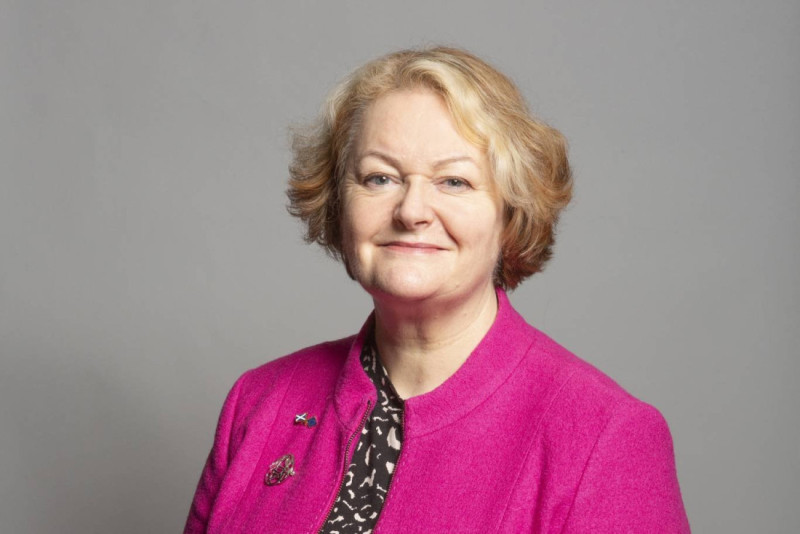In the News
A hot topic at the moment is the Government’s Health and Social Care Bill. Currently at the Committee stage in the Houses of Parliament, the legislation contains various provisions, but among its most notable (from a social care perspective) are:
Enhanced powers for the Health Secretary to intervene earlier in decisions about local care services.
Integrated local health and social care services in England through the legal establishment of Integrated Care Systems (ICSs).
There’s a helpful explanation of what the new system will look like here, courtesy of The King’s Fund. The Government’s stated intention is to improve the collaboration and integration of different bodies, providers and authorities to determine how local health and social care can best be met.
Funding. Interest in the Bill has been heightened following the Government’s recently announced rise in National Insurance to finance spending on health and social care.
Second Reading. The Bill’s second reading in the House of Commons saw focussed debate surrounding high staff vacancies in the care sector as well as its integration with health care.
Opposition. Labour’s Shadow Health Secretary, Jonathan Ashworth MP, led criticism of the Bill over its perceived failure to deliver meaningful reform. Ashworth’s criticism was reinforced by contributions from a host of opposition MPs, including Olivia Blake (Labour), Munira Wilson MP (Liberal Democrat) and Debbie Abrahams (Labour).
Champions. In contrast, proponents of the Bill, including Laura Trott MP (Conservative) and Peter Aldous MP (Conservative), have welcomed the Bill’s provision for the CQC to be granted authority to inspect social care services, while arguing that the integration of local health and care services would offer improved control over delivery to those who run local services.
Industry. Opposition criticisms have also been backed up by industry leaders, such as Nigel Edwards, Chief Executive of The Nuffield Trust, and David Wrigley, Deputy Chair of the BMA Council, arguing that the measures contained within it fail to address the social care crisis the Prime Minister himself acknowledged in 2019.
Writing in the i newspaper, former Vice Chairman of the BMA, Dr Kailash Chand, expressed concerns around what he sees as the threat of growing privatisation. He argues plans for private companies to have a say on local social care provision poses a conflict of interest, given those same companies could also bid to run those services.
Committee Stage. On the 7 September, the Bill passed through to the Committee Stage. Put before a committee of MPs, the committee will gather evidence from experts and interest groups, which will then contribute to the discussion of amendments to the Bill. However, don’t expect to see any drastic changes to the Bill adopted. Government influence over the membership of the committee means the greater fight is likely to be seen at the proceeding Report Stage when the Bill returns to the floor of the House of Commons.
Interview
This month’s interview is with Stephen Hammond MP, Minister of State in the Department of Health and Social Care from 2018 to 2019, to discuss the social care aspects of the Bill.

How will the new Health and Care Bill impact the provision of adult social care in England?
The Covid pandemic has brought social care to the forefront of political awareness. The Prime Minister has now announced his plans to reform what the state provides and a plan for how to fund this.
The proposals in the Bill mean social care provision in the UK will be fundamentally altered. The Bill will place an obligation on the health and care systems to align and work together more closely to deliver combined health and social care for the increasing number of our population aged over 65, and those who require support earlier in their lives.
The Bill will change the commissioning and delivery of care and it has specific measures on system assurance and data to guarantee appropriate provision and commission of social care.
Will the Bill improve the integration between the NHS, local authorities and care providers?
The Bill should be the mechanism to secure the oft promised integration of health and care systems. In the Bill there is an obligation on the NHS and local authorities to work even more closely together.
This duty to collaborate is put into law by this Bill. Furthermore, every region of England will be covered by an Integrated Care System within which the Integrated Health and Care Partnership will align systems and produce a plan to integrate health, public health, and social care needs. The Bill will also introduce the ability to bring in a joint appointment of executive directors. All of these measures are aimed directly at improving integration.
Will the Health Secretary’s new power to intervene in social care provision undermine the ability of local authorities to manage services effectively?
The new powers for the Secretary of State relating to care will allow the Government to make emergency payments directly to all social care providers. This power recognises that there are circumstances where speed of action and flexibility in provision are sometimes needed.
The Covid pandemic has brought social care to the forefront of political awareness
As this payment power is to be determined solely on a case-by-case basis and is not intended to replace the existing system of funding via local authorities, I see no basis to suggest Local Authorities are being side lined.
What lessons has the social care sector learned from the pandemic and how does the Bill reflect these?
There is an explicit recognition that this Bill is not intended to address all the challenges. The pandemic has highlighted that the demand pattern for care is likely to change, and that those changes are likely to result in a rise in costs.
Firstly, the social care industry is extremely fragile with several large monopolistic providers and a very long tail of small and medium size providers, whose financial strength is weak.
Secondly, the number of deaths in social care will result in demands for assurances of quality. It is likely that the way the regulatory regime provides that assurance is likely to come under scrutiny.
Finally, any concern about residential care is likely to lead to an increase in domiciliary care. Although this reduces the accommodation cost it will lead to increased support costs as the need for more and better qualified carers rises.
Will the Bill help to reduce or increase the bureaucracy and red-tape faced by the adult social care sector?
The NHS and the care system have complained that the existing legislation is too detailed and prescriptive with barriers that prevent joint working. Moreover, the system of procurement under the 2012 Act has attracted criticism due to the involvement of the Competition and Markets Authority. The Government’s intention was that the measures in the Bill will remove these bureaucratic barriers. The changes to the procurement regime are likely to be beneficial. However, only when the Bill has been enacted and measures in place will a reasoned judgement on their effectiveness be possible.
Opinion
This month commentary comes from Dr Philippa Whitford MP, Scottish National Party (SNP) Health and Social Care spokesperson. Dr Whitford argues the Health and Care Bill fails to place due emphasis on social care and that it should move away from a focus on the idea that private sector competition drives up quality of care.

Unravelling the Complexities of the NHS and Social Care Reform in England
The last Health & Social Care Act (2012) is what got me actively involved in politics. I followed the Lansley proposals in sheer disbelief that anyone could think breaking the NHS in England into pieces and making them compete with each other would somehow improve patient care. Less than a decade on, this Conservative Government is having to unpick some of the worst aspects of that legislation which led to fragmentation of the NHS in England.
While many will be glad to see the back of Section 75, which forced health service contracts to be put out to tender, the Government’s Covid response doesn’t suggest they are any less keen on outsourcing services to commercial companies.
Health & Social Care require a collaborative approach to developing integrated services which are wrapped around the patient and their family. However, instead of the Integrated Care Systems and Partnerships being statutory public bodies, focussed on improving the health and wellbeing of their local population, conflicts of interest will be created by private companies hoping to win contracts by being able to sit on Integrated Care Partnership boards.
Due to the UK Government’s failure to take the opportunity to return to a publicly funded and delivered health service as we have in Scotland, the wasteful transactional costs of the purchaser/provider split and financial competition will remain.
This Government remains wedded to the flawed idea that financial competition drives up the quality of clinical care, despite the lack of any evidence. Rather, they should recognise the need for service integration alongside a relentless focus on patient safety and clinical outcome audits (as highlighted in the Nuffield Trust’s 2017 report ‘Learning from Scotland’s NHS’).
The gaping hole in the misnamed Health and Care Bill is, of course, the complete lack of any proposals to close the funding gap and improve the delivery of social care.
In 2015, NHS England’s Five Year Forward plan already identified the dependence of the NHS on a well-functioning and resilient social care sector and, during the 2019 election, the Prime Minister claimed to have a fully prepared social care plan. However, it has yet to see the light of day.
The failure to properly fund social care in England will undermine the whole integration agenda - as healthcare providers are unlikely to be willing to share financial risk with woefully underfunded services.
This Government remains wedded to the flawed idea that financial competition drives up the quality of clinical care
Not only has the pandemic highlighted the vulnerability of the social care sector, particularly care homes, it has also brought home the important role played by care staff.
In Scotland, where care staff are already registered and paid at least the real living wage, the Feeley Review proposes the further development of the profession and the establishment of a National Care Service with Scotland-wide service standards, training programs and terms and conditions. While Scotland is unique in providing free personal care, the review proposes taking a human rights approach to the provision of care support: valuing it as enabling individual participation in society rather than just a financial burden.
Over the coming decades the UK population will age considerably and it is critical to have services in place to meet the needs of older citizens. However, we also need a greater focus on healthy ageing as, while life expectancy has increased, we are not yet ageing well and this is exacerbated by significant health inequalities between those living in affluent or deprived communities.
Indeed, poverty is the biggest single driver of ill-health and laying the foundation of healthy ageing means tackling child poverty and investing in the wellbeing and early years of our younger citizens.
Wellbeing is not about healthcare, and is more than just an absence of physical or mental illness, but developing a ‘wellbeing’ economy would require a total change in philosophy. While the public are looking for a radical approach to post-Covid recovery, it is not clear this UK Government is interested in taking up the challenge.
We will be the next generation of care users, whether as recipients of care or as unpaid carers seeking respite for a loved one. We, therefore, have a vested interest in improving social care provision, but that will require investment in training, supporting and rewarding those we rely on to deliver that care.



